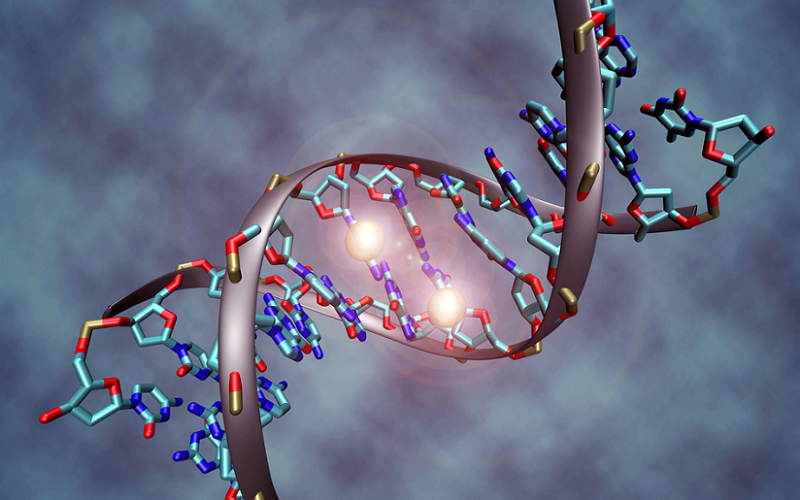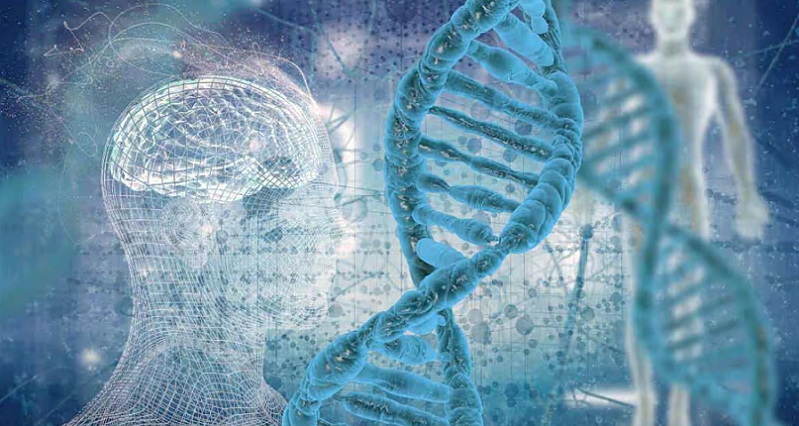
In the ever-evolving world of cognitive enhancement, nootropics have emerged as a beacon of hope for those seeking to boost their brain power. These so-called ‘smart drugs’ or cognitive enhancers are not just a contemporary fad but are deeply rooted in both traditional and modern medicine. However, the intrigue surrounding nootropics extends beyond their immediate effects on brain function. Recent research delves into a fascinating and less explored domain: the epigenetic influence of nootropics on our brain. Epigenetics, a field that studies heritable changes in gene expression that do not involve alterations to the underlying DNA sequence, is a crucial element in understanding how our environment and choices can impact our genetic makeup.
Contents
Basic Concepts of Epigenetics and Brain Function
Before diving into the complex interactions between nootropics and epigenetics, it’s crucial to understand the foundational concepts of epigenetics and how they relate to brain function. Epigenetics is a fascinating field that studies changes in gene expression caused by mechanisms other than changes in the DNA sequence itself. These changes can have profound effects on various aspects of our physiology, including cognitive functions.
Epigenetic Mechanisms in the Brain
The brain is a dynamic organ, constantly adapting to various internal and external stimuli. Epigenetic mechanisms play a key role in these adaptations, influencing how genes are expressed in neural cells.
DNA Methylation
DNA methylation is a common epigenetic modification where a methyl group is added to the DNA molecule. This modification can change the activity of a DNA segment without changing the sequence. In the brain, DNA methylation is involved in neural development, synaptic plasticity, and memory formation. It acts as a regulatory mechanism, often silencing gene expression.
Histone Modification
Histones are proteins around which DNA winds. Modifications to these proteins, such as acetylation or methylation, can influence gene expression. In the brain, histone modifications are crucial for processes like long-term memory formation and the regulation of genes involved in neural plasticity.
Non-Coding RNA
Non-coding RNAs are RNA molecules that are not translated into proteins but play a role in regulating gene expression. In the brain, these molecules are involved in diverse processes, including brain development, neuron function, and synaptic plasticity. They help orchestrate the complex patterns of gene expression required for proper brain function [1].
The Role of Epigenetics in Cognitive Health
Epigenetics is not just about the control of gene expression; it’s a bridge between our genes and the environment. The brain’s ability to adapt and respond to environmental stimuli, including learning and memory, is heavily influenced by epigenetic mechanisms. These mechanisms are essential for normal cognitive development and function. Any disruption in epigenetic processes can lead to various cognitive impairments or neurological disorders. Understanding epigenetics is therefore vital in comprehending how our environment, lifestyle, and even substances like nootropics can affect brain function and overall cognitive health.

The Epigenetic Influence of Nootropics
Nootropics, often heralded for their cognitive-enhancing abilities, may also exert significant effects at the epigenetic level. Here we examine how these substances potentially influence gene expression in the brain, altering the landscape of cognitive health and functioning.
Research on Nootropics and Gene Expression
The relationship between nootropics and epigenetics is a burgeoning area of study. Emerging research suggests that certain nootropics may influence epigenetic mechanisms, thereby modulating gene expression in the brain. These changes can have profound implications for cognitive functions such as memory, learning, and neuroplasticity. Studies are increasingly focusing on understanding the molecular pathways through which nootropics exert these epigenetic effects, with the aim of developing more targeted and effective cognitive enhancers [2].
Case Studies: Specific Nootropics and Their Epigenetic Impact
Racetams
Racetams, a well-known class of nootropics, have been studied for their potential epigenetic effects. Some research indicates that racetams may influence brain function through histone acetylation, a process that can enhance synaptic plasticity and memory formation. These findings suggest that racetams could play a role in modifying the epigenetic landscape of the brain, leading to improved cognitive functions.
Modafinil
Modafinil, another popular nootropic, is known for its wakefulness-promoting effects. Recent studies have begun to explore its potential epigenetic impacts. Modafinil has been observed to affect gene expression related to the circadian rhythm and sleep-wake cycles, possibly through epigenetic mechanisms. This indicates a broader range of effects for modafinil, extending beyond its immediate stimulant properties.
Herbal Nootropics (e.g., Ginkgo Biloba, Bacopa Monnieri)
Herbal nootropics like Ginkgo Biloba and Bacopa Monnieri have been used traditionally for cognitive enhancement. Current research is uncovering their potential epigenetic effects. These natural compounds are being studied for their ability to modulate gene expression related to cognitive processes, potentially through mechanisms like DNA methylation and histone modification. This line of research opens up exciting possibilities for the use of herbal nootropics in cognitive health [3].
Theoretical Implications
The exploration of epigenetic influences of nootropics is not just academically intriguing; it holds substantial practical implications. Understanding these interactions could lead to the development of more effective and personalized nootropic interventions. It also raises important questions about the long-term impact of nootropic use on the brain’s epigenetic landscape. As this field of study progresses, it could revolutionize our approach to enhancing cognitive function and treating cognitive disorders.

Benefits and Risks of Nootropics from an Epigenetic Perspective
While the potential of nootropics to enhance cognitive abilities is widely recognized, it’s important to consider these effects from an epigenetic perspective. Here we examines the benefits and risks associated with nootropic use, particularly in how they may impact gene expression and overall brain health over time.
Potential Epigenetic Cognitive Benefits from Nootropics
From an epigenetic standpoint, nootropics could offer several cognitive benefits. By modulating gene expression, these compounds might enhance learning, memory, and brain plasticity. For instance, nootropics that affect DNA methylation or histone modification could potentially reverse age-related cognitive decline or improve learning abilities. These benefits, however, are not without their complexities. The precise mechanisms by which nootropics exert these effects are still being unraveled, and the long-term implications of altering epigenetic patterns remain a topic of ongoing research.
Risks and Side Effects of Nootropics
The epigenetic influence of nootropics also brings forth certain risks and side effects. Altering gene expression in the brain can have unforeseen consequences. For example, while certain epigenetic modifications may improve cognitive functions, they might also disrupt normal brain processes or contribute to neurological disorders if not properly regulated. The risk of dependency or the impact of long-term use on the brain’s natural epigenetic processes are also concerns that need to be addressed. Understanding these risks is crucial for the safe and effective use of nootropics [4].
Considerations for Long-Term Use of Nootropics
Considering the potential long-term impact of nootropics on epigenetic patterns, it’s essential to approach their use with caution. Users should be aware of the lack of extensive long-term studies on the epigenetic effects of nootropics. Healthcare providers and researchers advocate for a balanced approach, where the benefits are weighed against potential risks. Personalized medicine, considering an individual’s unique genetic and epigenetic makeup, may play a significant role in determining the suitability and safety of nootropic use in the long term.
Integration of Nootropics into Cognitive Health Strategies
Incorporating nootropics into cognitive health strategies requires a nuanced understanding of their potential effects, both immediate and long-term. This integration must consider individual differences in brain chemistry and lifestyle, as well as the evolving nature of epigenetic research.
Nootropics Synergistic Effects with Other Cognitive Enhancers
Nootropics can be part of a broader cognitive enhancement strategy, often working synergistically with other methods. This includes combining them with lifestyle changes, such as improved nutrition, exercise, and mental stimulation. The potential synergistic effects could amplify the benefits, but they also require careful management to avoid negative interactions. Understanding the epigenetic implications of such combinations is crucial, as the combined effects on gene expression and brain function may differ from the effects of nootropics alone [5].
Lifestyle Factors Influencing Epigenetics
Lifestyle factors play a significant role in epigenetic modifications, and their interaction with nootropics can be complex. Diet, exercise, stress levels, and sleep patterns all influence epigenetic patterns and can either enhance or mitigate the effects of nootropics. For instance, a diet rich in compounds known to favorably affect DNA methylation might complement the use of certain nootropics. Similarly, managing stress and ensuring adequate sleep are essential, as they can impact the brain’s responsiveness to nootropics.
Personalized Approaches in Nootropic Use
The field of epigenetics underscores the importance of personalized medicine. Given that individuals respond differently to nootropics based on their unique genetic and epigenetic makeup, personalization becomes key. Genetic testing and monitoring of epigenetic changes could, in the future, guide the selection and dosage of nootropics for optimal cognitive enhancement. This personalized approach aims to maximize benefits while minimizing risks, ensuring a tailored strategy that aligns with an individual’s specific cognitive and health needs.
References
[1] Epigenetic Neuropharmacology: Drugs Affecting the Epigenome in the Brain
[2] Epigenetic Neuropharmacology: Drugs Affecting the Epigenome in the Brain
[3] Identifying nootropic drug targets
[4] Enhancing cognition through pharmacological and environmental interventions
[5] cognitive enhancers nootropics

